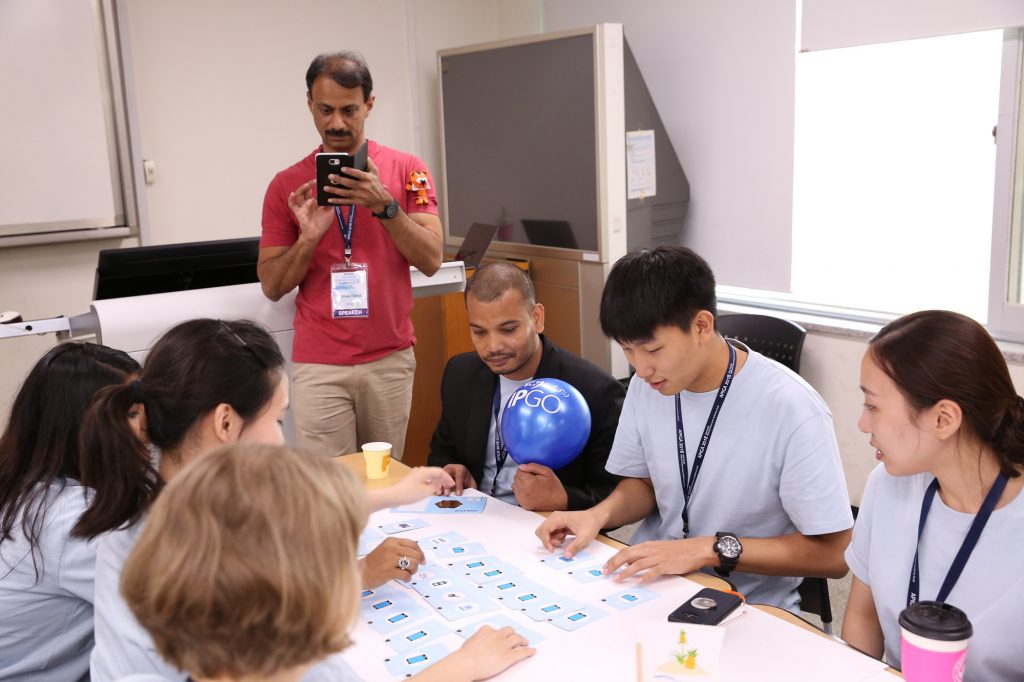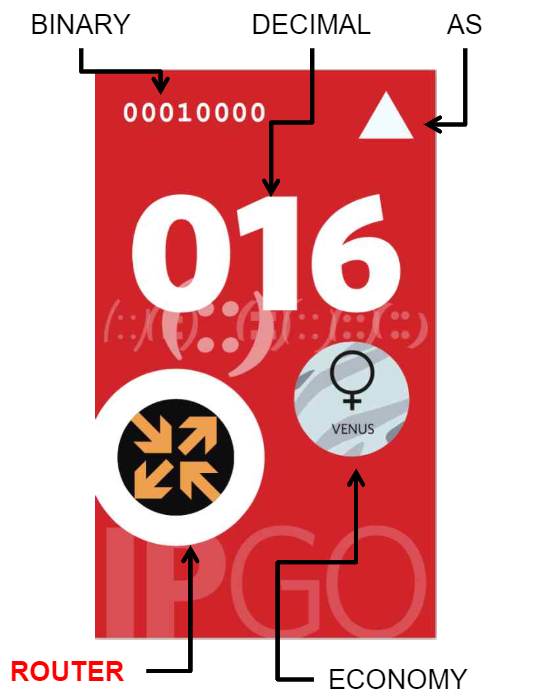
Before I address an audience, I usually begin by preparing slides. Back in 2016, when faced with the challenge of organizing a session for the Asia Pacific Internet Governance Academy (APIGA), a conference of young Internet governance enthusiasts, I had compiled around 130 slides to describe how the Internet works and the role of the Regional Internet Registries (RIRs).
Obviously, showing the full presentation via Powerpoint would be a boring experience. There had to be a better way to communicate this complex topic.
After discussing the problem with colleagues, the interactive card game ‘IPGO’ was born.
What is IPGO?
IPGO is a cooperative, interactive and fun card game to explain core Internet concepts, such as packet-switching, interconnection, routing, IP addresses and the Domain Name System (DNS). Players assume the roles of network operators and users to connect 256 devices with one another. In order to do that, they must build networks, route packets, assign IP addresses to their devices, test different routing paths, resolve domain names and fill-up routing tables. The goal of IPGO is to explore how all these components of the Internet relate to one another.
We created IPGO because it’s important for APNIC to work with various non-technical audiences. Students like those at APIGA are one good example of these kinds of audiences, but policymakers can also represent a non-technical audience whose expertise may trend more toward policy than technical knowledge. It is crucial that APNIC and these non-technical audiences are working from the same understanding of core Internet functions and stakeholders.
Since the first outing of the game at the 2016 APIGA event it has evolved through various iterations, often trialled at subsequent APIGA events.
Read: Supporting young fellows to get involved
In our first version of IPGO, the goal was to connect devices across different planets. The players built networks across those planets. The cards showed AS numbers and IP addresses that were allocated by demand from users assigned to different planets.
The cards included binary and hexadecimal codes that allowed us to explain IPv4, IPv6 and AS numbers.
An evolving game
Things went great at our first outing in APIGA. The audience was engaged and inspired. We trialled the game in other settings, involving different audiences, room layouts and session time lengths. We collected feedback and made improvements to the cards, sequence of modules and game flow.
One of the changes we made was to change to islands instead of planets. Also a joint collaboration emerged with Dot.Asia, to co-produce an improved DNS module, now including DNSSEC and DNS security attacks.

IPGO continues to evolve to cover more modules. It has been a useful tool for engagement, however, it has also been a side-project that hasn’t had a lot of resources dedicated to its development.

APNIC Foundation support for the next phase of IPGO
The IPGO card game was designed to be played in a room with a group of people; however, the global pandemic triggered thoughts about moving the game to the digital space.
This year the APNIC Foundation has stepped forward to invest in this digitization process and ongoing development of IPGO as part of a distinct project in the APNIC Activity Plan to develop educational materials for non-technical audiences.
The APNIC Foundation funding will support the production of ready-made courseware, slideware, media and online educational material with the goal of helping newcomers participate in the technical community.
Introductory courseware will cover fundamental Internet concepts, including IP address management and the role of registries in the Internet ecosystem, as well as an introduction to Internet governance.
The project is expected to take one year with the hope that the online version of the game and the new educational content will be ready by mid-2022. We are currently in the early stages of scoping the features of the online game, so we are still to determine what kind of things will be preserved from the card game and which ones will be developed from scratch.
This is a much-welcomed investment to further build the capabilities of IPGO, but the new online IPGO will still need to be deployed and tested after we complete this project. With this initial investment, we look forward to improving it further and reaching bigger audiences than ever before.
Since 2016, we have watched it grow from a simple idea for a card game into the beginnings of an online collaborative experience, and we look forward to seeing the transformation bear fruit!
If you are interested in helping us test or develop future versions of IPGO, please send an email to us at: ipgo@apnic.net
The views expressed by the authors of this blog are their own and do not necessarily reflect the views of APNIC. Please note a Code of Conduct applies to this blog.

